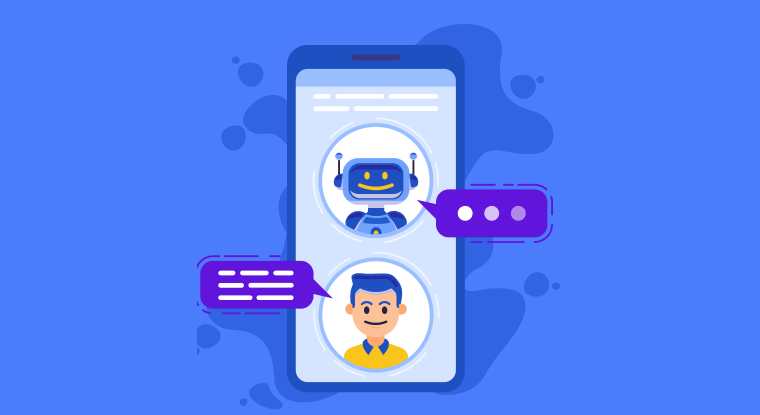
Imagine this: You’re on a website, struggling to find the right product, when a little pop-up appears—“Hi there! How can I help you today?” You type your question, and within seconds, you get a helpful response. Was that a chatbot or a virtual assistant? And does it even matter?
The truth is, while AI chatbots and virtual assistants may seem similar at first glance, they serve different purposes, operate on different technologies, and excel in different scenarios. Whether you’re a business owner looking to automate customer service or a consumer curious about how these tools work, understanding their differences can help you make smarter decisions.
In this deep dive, we’ll explore what sets AI chatbots and virtual assistants apart, where they overlap, and how to choose the right one for your needs.
What Are AI Chatbots?
AI chatbots are software programs designed to simulate human-like conversations. They use natural language processing (NLP) and machine learning to understand and respond to user queries. Most chatbots are rule-based, meaning they follow predefined scripts, while more advanced ones leverage AI to learn from interactions over time.
For example, if you’ve ever asked Sephora’s chatbot for makeup recommendations or used Domino’s Pizza bot to place an order, you’ve interacted with an AI chatbot. These bots are great for handling repetitive, straightforward tasks like answering FAQs, processing orders, or guiding users through a website.
According to a report by Grand View Research, the global chatbot market is expected to grow at a staggering 24.9% CAGR by 2030, proving just how essential they’ve become in customer service.
What Are Virtual Assistants?
Virtual assistants (VAs), on the other hand, are more sophisticated AI-powered tools that perform a wider range of tasks. Think Siri, Alexa, or Google Assistant—they don’t just answer questions; they can set reminders, control smart home devices, send emails, and even make phone calls.
Unlike chatbots, which are typically limited to text-based interactions, virtual assistants often incorporate voice recognition, contextual understanding, and integration with multiple apps and services. They’re designed to act as personal aides, adapting to user behavior over time.
A study by PwC found that 46% of consumers use voice assistants daily, highlighting how deeply integrated they’ve become in our lives.
Key Differences Between AI Chatbots and Virtual Assistants
1. Scope of Functionality
Chatbots are specialists—they excel at handling specific, narrow tasks like customer support or lead generation. Virtual assistants are generalists, capable of multitasking across various domains, from scheduling meetings to playing music.
2. Interaction Style
Chatbots primarily operate via text (though some now support voice). Virtual assistants, however, are built for voice-first interactions, making them more conversational and intuitive.
3. Level of Intelligence
While both use AI, virtual assistants rely on more advanced machine learning models to understand context, remember past interactions, and predict user needs. Chatbots, especially rule-based ones, follow a more rigid decision tree.
4. Integration Capabilities
Virtual assistants integrate with a broader ecosystem (e.g., smart home devices, calendars, email). Chatbots are usually embedded within websites, apps, or messaging platforms like Facebook Messenger.
5. Use Cases
- Chatbots shine in:
- Customer service automation
- E-commerce support
- Lead qualification
- Virtual assistants are better for:
- Personal productivity
- Smart home control
- Complex, multi-step tasks
When to Use a Chatbot vs. a Virtual Assistant
For Businesses
If you run an online store, a chatbot can handle order tracking, FAQs, and even upsell products. Companies like H&M use chatbots to improve customer engagement without human intervention.
However, if you need an assistant to manage internal workflows—like scheduling meetings or retrieving data from multiple sources—a virtual assistant like Microsoft’s Cortana might be more effective.
For Personal Use
Need help setting reminders or checking the weather? A virtual assistant is your best bet. But if you’re interacting with a brand’s customer service, you’ll likely encounter a chatbot.
The Future of AI Chatbots and Virtual Assistants
With advancements in AI, the line between chatbots and virtual assistants is blurring. OpenAI’s GPT-4 and Google’s LaMDA are pushing the boundaries of conversational AI, making interactions more human-like than ever.
Soon, we might see hybrid models—chatbots with the contextual depth of virtual assistants, or VAs that specialize in niche tasks like customer support.
FAQs: AI Chatbots vs. Virtual Assistants
1. Can a chatbot replace a virtual assistant?
Not entirely. While advanced chatbots can handle complex queries, they lack the broad functionality and personalization of virtual assistants.
2. Which is more cost-effective for businesses?
Chatbots are generally cheaper to implement and maintain, making them ideal for small to medium businesses. Virtual assistants require more sophisticated infrastructure.
3. Do virtual assistants learn from user behavior?
Yes! Tools like Alexa and Google Assistant use machine learning to adapt to user preferences over time.
4. Are chatbots only for customer service?
No—they’re also used in HR (for screening candidates), healthcare (for symptom checks), and even education (as tutoring aids).
5. Can I build my own chatbot or virtual assistant?
Absolutely! Platforms like Dialogflow and Microsoft Bot Framework make it possible to create custom chatbots. For virtual assistants, tools like Amazon Lex offer robust development options.
Final Thoughts: Which One Should You Choose?
The choice between an AI chatbot and a virtual assistant depends on your needs:
- Go for a chatbot if you need a focused, automated solution for customer interactions, sales, or support.
- Opt for a virtual assistant if you want a versatile, voice-enabled helper for personal or complex business tasks.
As AI continues to evolve, we’ll see even smarter, more intuitive tools. The key is to stay informed and choose the right technology for your goals.
So, next time a pop-up asks, “How can I help you?”—you’ll know exactly what’s behind it.
What’s your experience with chatbots or virtual assistants? Have they made your life easier, or do you find them frustrating? Share your thoughts in the comments!

